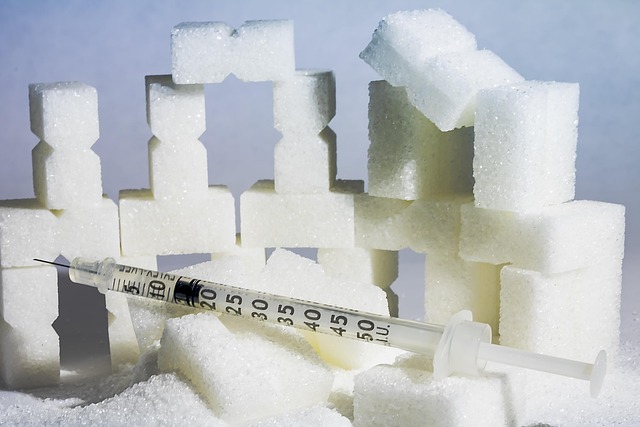The question “Is glucose sugar?” often comes up when people want to understand more about what they eat and how it affects their body. Simply put, yes, glucose is sugar.
More specifically, glucose is a type of simple sugar, known scientifically as a monosaccharide. It is one of the most common sugars found naturally in foods and plays a crucial role in providing energy to the body.
Glucose is found in many foods, especially carbohydrates such as fruits, vegetables, and grains. When you eat these foods, your body breaks down the carbohydrates into glucose, which then enters the bloodstream to be used as energy by your cells. This sugar is essential for keeping your body functioning properly.
A 2023 research review showed that, on average, an adult’s daily glucose intake comes from a variety of foods, and the body also produces glucose internally when needed.
The typical carbohydrate intake recommended to meet energy needs usually translates to about 130 grams of glucose or glucose-equivalent sugars per day. This highlights how important glucose is in our daily diet.
Is Glucose Sugar? Yes, but Here’s Why It Matters
In the research study, glucose is sugar, but it differs from other sugars like sucrose or fructose. These other sugars are made up of multiple simple sugar molecules, whereas glucose is a single sugar unit.
The body prefers glucose because it is easy to absorb and use immediately as energy. It is the main sugar transported through the blood to supply energy to organs and muscles.
The question “Is glucose sugar?” is often asked because the term “sugar” can refer to many different substances. However, glucose is a natural, simple sugar that fuels nearly all bodily functions.
Click here to learn more about Zakdavi glucose meter reviews.
How Glucose Works in the Body
Research in the International Journal of Molecular Sciences has shown that once glucose enters the bloodstream, the hormone insulin helps cells absorb it to produce energy.
If you ask again, “Is glucose sugar?” the answer remains yes, it is the sugar your body uses to stay active and healthy.
The body keeps blood glucose levels within a tight range because both too much and too little sugar can cause health problems. This balance is important for overall well-being.
Click here to learn more about the most accurate continuous glucose monitor.
What Makes Glucose Different from Other Sugars?
Understanding the question “Is glucose sugar?” also means knowing how glucose compares to other types of sugar. Sugars can be categorized into simple and complex sugars.
Glucose is a simple sugar, meaning it consists of a single sugar molecule. Other simple sugars include fructose (found in fruits) and galactose (found in milk).
Many of the sugars you consume daily are combinations of simple sugars. For example, sucrose, commonly known as table sugar, is made up of glucose and fructose molecules linked together.
When you digest sucrose, your body breaks it down into glucose and fructose, and both sugars then enter the bloodstream.
Glucose stands out because it is the preferred energy source for cells. The brain, in particular, relies almost entirely on glucose for its energy needs, which is why maintaining healthy blood glucose levels is important for mental function and overall health.
Click here to learn more about the most affordable continuous glucose monitor.
How Does the Body Use Glucose?
According to research published in the American Journal of Physiology-Endocrinology, when you eat carbohydrates, enzymes break them down into glucose, which is absorbed into the bloodstream.
This rise in blood glucose signals the pancreas to release insulin, a hormone that helps cells absorb glucose and use it for energy or store it for later use.
If glucose is not used immediately, it can be stored in the liver and muscles as glycogen, a form of energy storage.
This stored glucose can be converted back when the body needs energy during fasting or exercise.
Blood glucose levels need to be carefully balanced. Too much glucose in the blood, a condition called hyperglycemia, is associated with diabetes and other health problems. Too little glucose, or hypoglycemia, can lead to fatigue, dizziness, and confusion.
Click here to learn more about what carbohydrates do for children.
A Word from GetMe Treated
In summary, “Is glucose sugar?” is a straightforward question with a clear answer: yes, glucose is a sugar. It is a simple sugar essential for energy production and vital body functions. Understanding glucose helps us appreciate its importance and manage our diets better for optimal health.
Click here to learn more about urine flow and solute excretion during osmotic diuresis.
FAQs About Is Glucose Sugar
Is glucose the same as table sugar?
No. Table sugar (sucrose) is made of glucose and fructose, but glucose itself is a single sugar molecule.
Does glucose taste sweet?
Yes, glucose is sweet, but less sweet than common table sugar.
Is glucose naturally found in foods?
Yes, glucose occurs naturally in many fruits, vegetables, and grains.
Can glucose be harmful?
Too much glucose in the blood can lead to health issues like diabetes, but glucose itself is essential and safe when consumed properly.
Is glucose sugar good for energy?
Yes, glucose is the main sugar your body uses for quick and efficient energy.
How is glucose related to blood sugar?
Blood sugar is a term that refers mainly to glucose levels in the blood.

